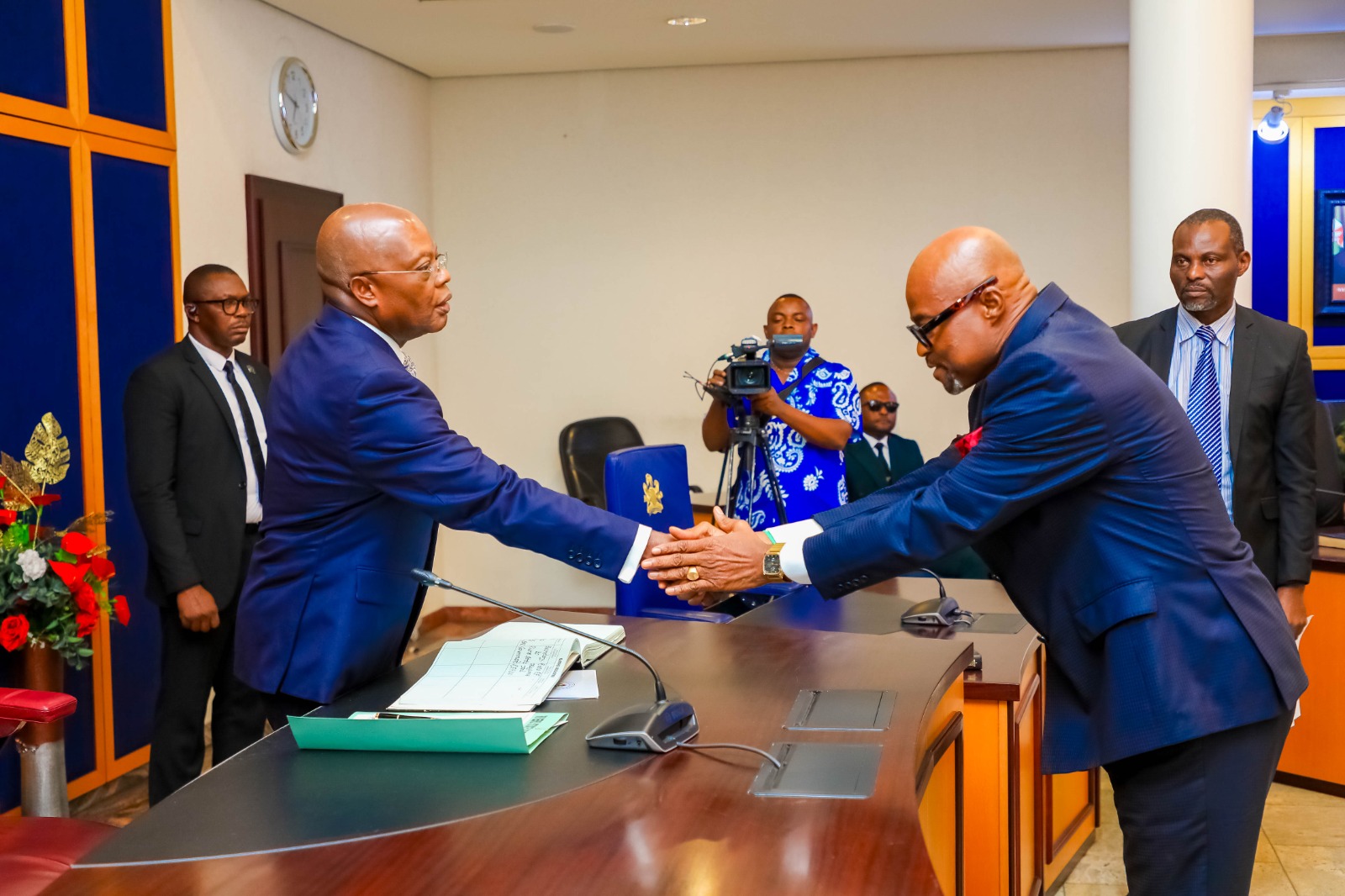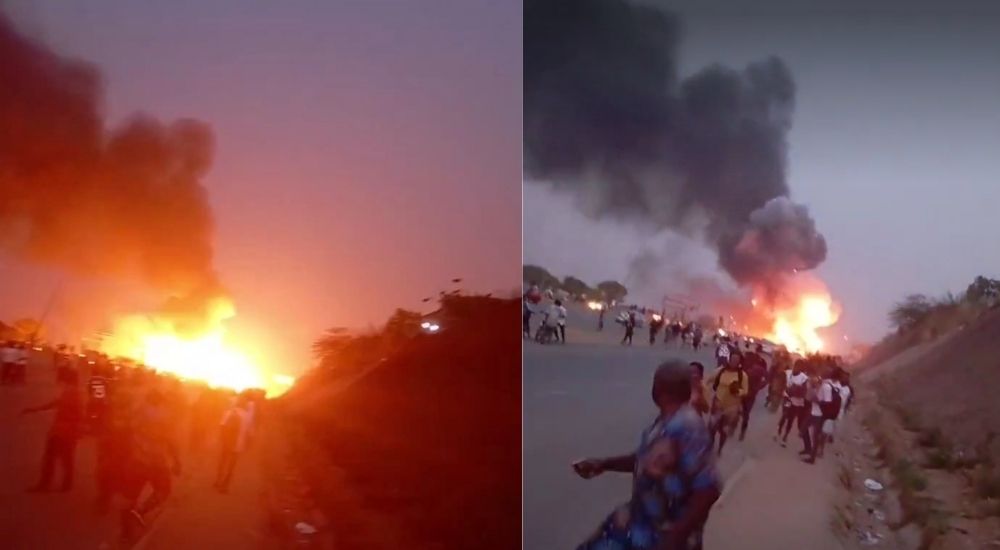Featured
PANDEF, NDD Reject 12 Provisions In PIB Insist On 10% OPEX For Trust Fund

The Pan-Niger Delta Forum (PANDEF) and the Niger Delta Dialogue (NDD) have rejected no fewer than 12 key provisions in the Petroleum Host and Impacted Communities Development Bill (PHICDB).
They warned that the key provisions in the bill must be redrafted, rephrased and restructured to accommodate the interests of the impoverished and neglected people of the oil and gas host and impacted communities in the Niger Delta, or the peace and appropriate development sought by the bill would elude both the region and the country as a whole.
The critical Niger Delta groups expressed their rejection of the vital provisions of the bill during the NDD’s Strategic Communication and Advocacy Training session for major stakeholders in PANDEF, NDD and the various Policy Advocacy Committees (PACs) in Port Harcourt, recently.
The Tide reports that the PHICDB, an integral part of the Petroleum Industry Bill (PIB) currently receiving legislative consideration at the two chambers of the National Assembly, “seeks to foster sustainable shared prosperity amongst host and impacted communities; provide direct social and economic benefits from petroleum operations to host and impacted communities; enhance peaceful and harmonious coexistence between settlers and host and impacted communities; as well as, create a framework to support host and impacted communities’ development” process.
The PIB, which has been sleeping in the drawers of the federal lawmakers for more than 18 years, is the oldest pieces of legislation yet to receive the majority consent of National Assembly members in Nigeria’s democratic history.
Among the provisions is the Interpretations Section, which they claim, was vague in the use of words and terms “host and impacted communities” to describe oil-bearing communities in the region, insisted that the lawmakers must clearly identify communities by the specific roles they play in the hydrocarbons production chain.
They “recommended that host communities should be clearly defined as villages where oil wells and flow stations are situated. Impacted communities should be defined as villages where oil installations such as pipelines run through as well as villages located within a three kilometer radius of those where oil wells and gas plants or flaring points are domiciled”, in the final bill to be passed.
The stakeholders condemned the observed silence of the bill on how the clusters should be formed and the trust fund shared, and recommended that clusters should be carved out on the basis of state Houses of Assembly constituencies for ease of coordination and mobilisation.
They also condemned the vague use of the term ‘Settlor(s)’ in Part 2, Section 2, Subsection 1 and 2 of the draft bill, and insisted that each International Oil Company (IOC) must be deemed as a Settlor(s) and have its own trust fund incorporated in the clusters to avoid confusion in funding and projects’ implementation.
The stakeholders wondered why “sabotage spill” was not clearly defined but its consequences were highlighted in the draft bill, and “recommended that there should be no clause compelling the Settlor(s) not to pay what is agreed until they stop operation by virtue of licence expiration or cessation of operational existence in the host and impacted communities”.
They further condemned the observed silence in the sharing formula of the accruing fund from the “Settlor(s)” between host and impacted communities, particularly given that there are more impacted than host communities in available oil industry records, and “recommended that a sharing formula of 70 per cent for host communities and 30 per cent for impacted communities” should be spelt out in the bill, when passed for the President’s assent.
The stakeholders also expressed worry that Part 3, Section 9, Subsection 1 and 2 of the draft bill rests the creation and determination of the membership of the Board of Trustees (BoTs) for the trust funds on the IOCs, warning that this may undermine the peace effort in the region, and further undercut the interests of oil-bearing communities.
They, therefore, “recommended that the BOTs should be a five-member body with a representative each from Host Communities, Impacted Communities, Federal Government, and two representatives for the Settlor(s). Each stakeholder should determine who their representatives will be. Representatives of Host, Impacted communities and the Settlor(s) must be indigenes of the cluster area.”
The PACs berated the Presidency for not giving details on the actual composition of the day-to-day management committees of the cluster trusts as enunciated in Section 14 of the proposed bill, and “recommended a nine-man committee with two representatives each nominated by Host and Impacted communities; three representatives of Settlor(s); and one representative each from state and federal governments, respectively”.
They condemned the provision of only 2.5 per cent of the actual operating expenditure (AOPEX), against 10 per cent in the previous bill submitted to the 8th NASS, for the smooth running of the recurrent and capital expenditures of the cluster trusts, and “recommended a minimum of 10 per cent of the operating expenditure (OPEX) to fund the cluster trusts and 5 per cent equity participation in the operations of the IOCs for both Host and Impacted communities”, in the final copy of the bill.
The stakeholders also picked holes in Section 11, which splits the utilization of the Endowment Fund to 70 per cent for capital expenditure; 20 per cent for the Reserve Fund; and 10 per cent for the Settlor(s) special projects, and “recommended that 75 per cent be reserved for capital expenditure; 20 per cent for the Reserve Fund; and 5 per cent for logistical and recurrent expenditures off the BoTs, management committees and the advisory committees”.
They expressed worry that the Presidency failed to specify how the operating expenditures of the Settlor(s) would be verified to ascertain the accruing funds to the cluster trusts, and “recommended that the OPEX, which is usually audited from the previous year’s spend, should be used to factor the accruing fund for the current year, e.g. AOPEX for Year A, audited in Year B, and used to calculate budget for Year C”.
The stakeholders blasted the Presidency for including in Section 22 that the Settlors’ OPEX paid into the trust fund shall be subject to Petroleum Income Tax (PIT) and Companies Income Tax (CIT) deductibles, and recommended that the Endowment Trust Fund should be excluded from any form of taxation, as the bill, in its original state would limit the amount of money available for development projects and programmes in the region.
The PACs queried Section 5 of the present bill, which does not give specific punishments for under-payment, late payment or non-payment of agreed money into the cluster trust fund as at when due, and recommended that failure by the Settlor(s) to pay the required percentage of the OPEX by first day of the year, should attract immediate suspension of operating licence; failure to do so by first day of second month should attract immediate withdrawal of operating licence; while before a Settlor gets another approval to operate in the same Oil Mining Lease (OML) or Oil Prospecting Licence (OPL), two per cent of the entire money owed the cluster trust fund must be paid as penalty in addition to the full payment of the entire balance in outstanding debt to the cluster communities.
The stakeholders lamented the lack of sufficient clarity on timeframes for incorporation of cluster trusts for Host and Impacted communities and the failure to stipulate penalties for reneging on implementation of agreed projects and programmes by the Settlor(s) as contained in Section 3 of the bill before the NASS, and recommended that deadlines be specified for the incorporation of cluster trust funds and inauguration of management committees and BoTs, just as the bill must specify duration not exceeding 24 months before the completion and commissioning of physical infrastructure projects in the affected communities, and six months for execution of human capacity development programmes such as economic empowerment schemes, scholarship initiatives, skills acquisition and entrepreneurship opportunities, among others.
All the parties warned that failure to accommodate the recommendations of the PACs in the bill, which the NASS has promised to pass into law by February, 2021, would be devastating for the people, and may trigger another round of tension and agitations in the region.
By: Susan Serekara-Nwikhana
Featured
Bring Your Wealth Of Experience To Governance, Ibas Tasks New SSG

The Sole Administrator of Rivers State, Vice Admiral Ibok Ete Ekwe Ibas (rtd), has charged the new Secretary to the State Government (SSG), Prof Ibibia Lucky Worika to bring his wealth of experience to bear in governance of the State.
Vice Admiral Ibas (rtd) gave the charge shortly after swearing in the new SSG at the executive chambers of Government House on Wednesday night.
The Administrator who congratulated Prof Worika on his appointment said the choice was not merely an administrative decision but a statement of intent.
Vice Admiral Ibas (rtd) explained that the new SSG has an unparallel expertise in law, policy and international governance, which align perfectly with the mission to restore law, order, integrity and public trust in Rivers State.
He said: “To our new SSG, the task ahead is onerous, but your track record leaves no doubt in our minds that you will prove your mettle. Rivers State needs your intellect, grit and unweaving dedication. Together, we will write a new chapter of progress for this great state.
“Prof Worika’s role will be critical in driving this vision, ensuring that every policy, every decision and every action is in consonance with this administration’s mandate to restore law and order, stabilize the polity and to create the necessary conditions for the restoration of democratic institutions and representations.”
Vice Admiral Ibas (rtd) pointed to his maiden address to Rivers people wherein he emphasised that his administration will be committed to delivering an effective governance that is anchored on transparency, accountability and service.
He therefore, enjoined the new SSG to brace up to the demands of his office, and offer his best service as required while also working cooperatively with civil servants.
Vice Admiral Ibas (rtd) said: “You have no time to settle down. You must roll up your sleeves and get to work with the team.
“Our civil servants with whom we will work closely to run this administration are critical stakeholders and we must work with them to ensure that the state continues to function effectively during this administration.
“To the Permanent Secretaries and civil servants as a whole, once more I will ask your kind cooperation and support as we work to achieve our objectives at this time,” he added.
Featured
I Am One Of You, Sole Administrator Tells Rivers People …Warns Against Violence, Crude Oil Sabotage

The Sole Administrator of Rivers State, Retired Vice Admiral Ibok-Ete Ibas (rtd), has assured residents that he is not in the State as a partisan actor or political competitor but as a stabilising force to restore governance and order.
In a state broadcast yesterday, Ibas, who assumed duty at Government House, Port Harcourt, emphasised his commitment to protecting civil liberties and ensuring the safety of all citizens.
However, he issued a stern warning against crude oil sabotage and violence, urging residents to resist any temptation to return to past hostilities.
“For decades, I have dedicated my life to the service of our great nation—first as the 20th indigenous Chief of Naval Staff and later as Nigeria’s High Commissioner to Ghana. I answered this call out of the need for peace in Nigeria, and most importantly, in Rivers State,” Ibas stated.
Describing the prolonged political impasse as a major setback to governance and democracy, he acknowledged the hardships faced by families and businesses due to the prevailing uncertainty.
“As a son of the Niger Delta, I am one of you. I feel the weight of this crisis on families, businesses, and the future of our people,” he said.
Ibas commended President Bola Tinubu’s decisive action in declaring a state of emergency in Rivers State, stressing that it was a necessary move to restore stability and revive economic activities.
“My mandate is clear: restore law and order, ensure stability, and create an enabling environment for economic growth. But this mission requires collective support from all stakeholders, regardless of political affiliation or ethnicity,” he stated.
He discouraged attacks on oil infrastructure, reminding residents of the devastating environmental and economic consequences of such actions.
“The Niger Delta has moved beyond the destruction of oil facilities. We must resist the temptation to return to those ugly days,” he cautioned.
While pledging to uphold civil liberties and the rule of law, the Sole Administrator warned that lawlessness and violence would not be tolerated.
“We will not act arbitrarily, but we will not hesitate to deal decisively with anyone who threatens the peace and stability of Rivers State,” he declared.
Ibas revealed that he had concluded a State Security Council meeting where strategic measures were outlined to de-escalate tensions and prevent further conflict.
Expressing gratitude to President Tinubu for entrusting him with the responsibility, he also acknowledged the National Assembly for approving the emergency declaration.
“I will work closely with the national leadership under the guidance of the President. I am optimistic that Rivers State will emerge stronger and greater,” he concluded.
Featured
Abuja Truck Explosion Death Toll Rises To 10 …As Another Truck Crashes On Same Spot

The Federal Capital Territory Emergency Management Department has confirmed that 10 persons have died in the truck explosion that occurred near Karu bridge, along the Abuja-Keffi Expressway, on Wednesday.
The FEMD’s Head of Public Affairs, Nkechi Isa, confirmed the numbers in a statement, yesterday.
The Acting Director General of the Emergency Department, Abdulrahman Mohammed, had earlier confirmed that eight persons had died as of yesterday morning, with five confirmed dead on the scene, and four others burnt beyond recognition.
““Five people were taken dead from the scene yesterday (Wednesday). Out of the people that were injured, one died, making six. Then this morning (yesterday), when I asked my people to go round, they discovered that two had already died again, making eight. Four of them from yesterday were burnt beyond recognition.”, he explained.
However, in her statement, Isa said the Head, Forecasting Response and Mitigation of FEMD, Mr Mark Nyam, said eight bodies were deposited at the Karu Hospital Morgue, one body at the Asokoro Distinct Hospital Morgue while another body was deposited at the National Hospital.
He added that some victims had been referred to the Gwagwalada Teaching Hospital, Federal Medical Centre, Keffi, and Cedercrest Hospital Abuja for proper care.
Part of the statement reads, “The FCT Emergency Management Department FEMD can confirm that 10 persons lost their lives to the truck explosion that occurred at Karu bridge along Abuja / Keffi expressway.
“The Head Forecasting Response and Mitigation of FEMD, Mr Mark Nyam said eight bodies were deposited at the Karu Hospital Morgue, one body at the Asokoro Distinct Hospital Morgue while another body was deposited at the National Hospital.”
He informed that over 30 persons suffered various degrees of burns.
“Some of the victims have been referred to Gwagwalada Teaching Hospital, Federal Medical Centre,Keffi and Cedercrest Hospital Abuja for proper care,” he said.
Isa also stated that no fewer than 10 vehicles were burnt during the incident, adding that the FEMD boss after a visit to the incident scene, appealed to motorists to observe traffic rules and regulations.
He also cautioned against reckless driving, dangerous overtaking and poor maintenance of vehicles, while urging FCT residents to always use the 112 emergency toll free number in the event of an emergency.
Meanwhile, barely 24 hours after the incident, another fertiliser-laden truck has collapsed on the same spot.
The Tide learnt that the incidence occurred at about 3:54pm yesterday.
The Head of Public Affairs of the FCT Emergency Management Department, Nkechi Isa, confirmed the accident in a statement, stating that the truck collided with a Hijet and a dump truck, adding that no life was lost.
She cautioned road users to drive with caution as the Federal Road Safety Corps was making efforts to tow away the affected vehicles, to avoid traffic built up.
“Another accident has occurred under Karu bridge along the Abuja-Keffi Expressway. Thankfully, no life was lost to the incident. Our Search and Rescue say the accident occurred when a truck laden with fertilizer ran into a Hijet and a dump truck also known as tipper.
“Motorists are advised to drive with caution as the Federal Road Safety Corps is taking steps to tow away the affected vehicles in order to avoid traffic built up,” the statement read.
Meanwhile, several videos showed some persons trying to clear the fertiliser bags from the fallen truck to ease traffic.
-
Niger Delta1 day ago
Tompolo, N’Delta’s Distinguished Son – Oborevwori
-

 Politics1 day ago
Politics1 day agoFG Reaffirms Commitment To Enduring Democracy
-

 News1 day ago
News1 day agoSERAP Sues NBC Over Ban On ‘Tell Your Papa’ Song
-

 Maritime14 hours ago
Maritime14 hours agoRacketeering: TTP Trains Customs Agents, Freight Forwarders On Eto APP
-

 News1 day ago
News1 day agoHYPREP Moves To Complete Ongoing Projects This Year
-
Rivers1 day ago
Don Urges Govt To Be Impartial In Tackling Crisis
-

 Politics1 day ago
Politics1 day agoEaster: Ex-Federal Lawmaker Urges Reflection, Unity, Constitutionality
-

 News1 day ago
News1 day agoDeath toll rises to 56 in Benue attacks













